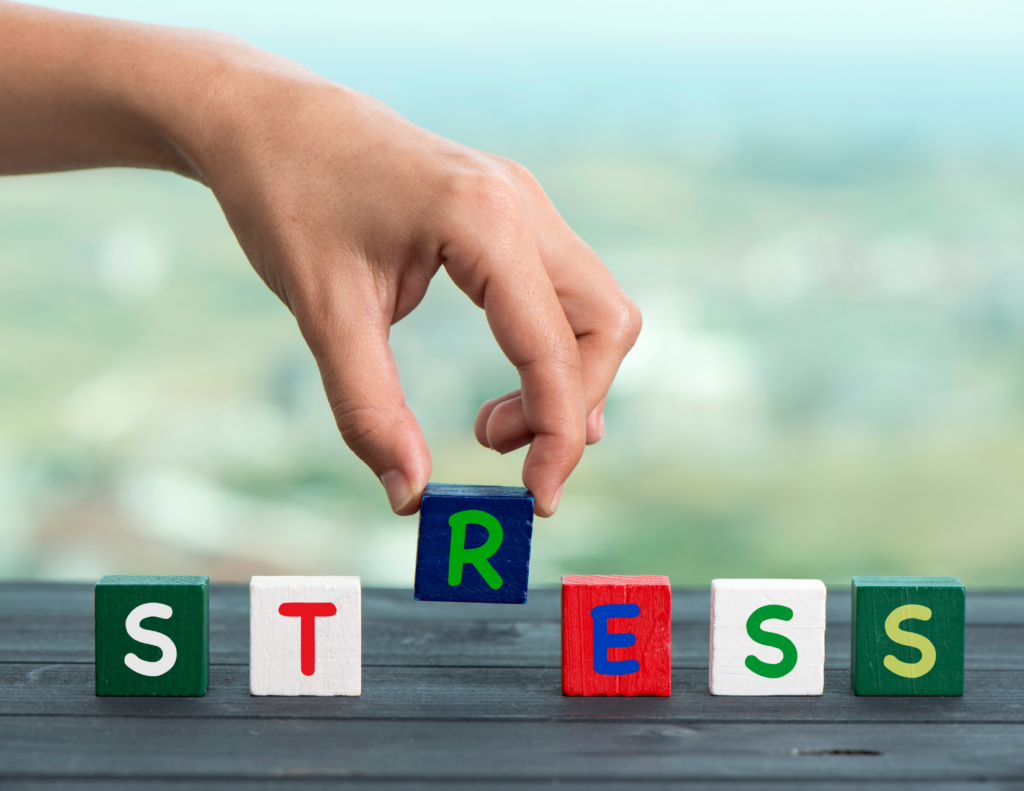Nope, I did not spell that incorrectly. It’s time to take care of ourselves! Stress in the American workforce is a mental health crisis. As managers, we have people at work who depend on us, and that means to take care of them, we must take care of ourselves first. According to the American Psychological Association, approximately seven in ten Americans have experienced increased stress over the pandemic. The stress we are under is not decreasing.
As a manager, you have a direct impact on the level of engagement of your team. If you are under stress, it is highly likely that your team is seeing and feeling your stress, which, in turn, is affecting their level of engagement. Why does that matter? First and foremost, because you care about them. Additionally, your employees’ engagement level directly correlates to their retention and your business outcomes.
So, you may be thinking, well, I don’t think I am under stress. It is not lost on me that we sometimes try to be superheroes as managers. Here are some examples of emotional and physical manifestations of stress: headaches, shoulder and neck pain, teeth grinding, feeling tired, being anxious, gastrointestinal issues, feeling overwhelmed, not keeping track of things, memory lapses, and sleeplessness, to name a few things. Of course, you should always consult your physician to make a medical diagnosis. If any of these symptoms resonate with you, it just might be time to put on your oxygen mask so you can be your best self for others.
What does this have to do with “Vagus,” you ask? Well, the Vagus Nerve is one of the longest nerves in the body and is your secret weapon to fighting stress. It is a nerve directly connected to the brain and is part of the Autonomic Nervous System. The Autonomic Nervous System has two components the Parasympathetic Nervous System, which slows things down and helps us relax, and the Sympathetic Nervous System, our fight or flight response mechanism. Stimulating the Vagus Nerve activates the Parasympathetic Nervous System, promoting a more relaxed and tranquil state of mind and well-being.
What healthy activities can help you stimulate the Vagus Nerve to reduce stress? Draw from the familiar first. What hobbies allow you to relax and bring you boundless joy? Be intentional and schedule time for them.
The suggestions that follow are common ways to help stimulate the Vagus Nerve:
· Diaphragmatic breathing – This is my favorite way to destress. Deep breathing can be done by almost anyone anywhere, and I have found that it has an immediate impact in making me more relaxed. 4-7-8 breathing is my go-to breathing technique. Here is a video by Dr. Andrew Weil that further explains the method.
· Singing – Be playful; it’s time to put on your favorite song and sing out loud.
· Cold Water – Have you heard of Wim Hof? He is known as the “Ice Man” because he has conditioned his body for extremely cold temperatures. What he has managed to do requires adaptation over time. For the rest of us, an excellent way to begin is to start simply, immerse your face in cold water, put a cold compress behind your neck, take a cold shower, or how about doing a Polar Bear plunge!
· Massage – Treat yourself to a foot, scalp, or ear massage. Yes, there is such a thing as an ear massage.
· Laugh – Spend time with people who make you laugh, watch a funny movie, a sitcom, or a show with your favorite stand-up comedian.
· Exercise – You do not have to over-exert yourself to feel the benefit. Try walking in nature or on a treadmill, running, cycling, or whatever you can do safely.
· Journaling– This is a psychological Vagus Nerve stimulation exercise. “Narrative expressive writing” can be used to manage your emotions not by reliving them but by making sense of them and exploring them in a narrative form that gives you the ability to examine, reflect, and understand your feelings.
Be kind to yourself. If you need someone to give you permission for self-care, I am your person. Your mission, should you choose to accept it, is to provide yourself with the gift of time, just 15 minutes to start to map out one thing you plan to do this week to take care of yourself and then schedule recurring time for that activity on your calendar and hold yourself accountable. Repetition forms a habit, and creating a new habit rewires your brain.
So, what is Boi going to commit to, you ask? I am recommitting myself to physical movement and will start with walking. Thirty minutes a day, three times a week, and once during the weekend. I have placed it on my calendar to hold myself accountable. Share your plans in the comments below.








6 Responses
Thanks, Boi – this is great! I am committing to keeping my workout time on my WFH days and at least in office day, as well as 1 weekend day – so 4x per week. I find that movement really helps me keep the stress at bay.
That sounds very strategic and attainable Kim! Thank you for sharing.
Exercise is so important to stress management and overall health! And you don’t have to kill yourself to get the benefit. I’ve started some brief meditations using the peloton app and find those bring my heart rate down.
That is a fantastic tip, Lauren! Thank you.
Boi, I’m delayed in reading this post but it is so timely! I’m going to try the 4-7-8 breathing right now. I started my day early and am already feeling a bit stressed. Thanks!
Thank you for giving it a try, Yolanda! I hope it provided some relief.